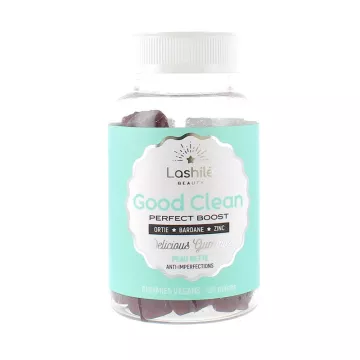
What is clear skin and why is it important?
Clear skin is an indicator of health and well-being, characterized by the absence of imperfections, an even texture and a radiant complexion. Healthy skin not only reflects good general health, but also plays a crucial role in self-confidence and social perception. Achieving and maintaining clear skin can therefore have significant positive impacts both physically and psychologically.
What are the main causes of skin imperfections?
Skin imperfections can be caused by a multitude of factors. Hormones, stress, unbalanced diet andexcessive sun exposure are among the most common. In addition, the use of unsuitable or poor-quality skincare products can also clog pores and worsen skin condition.
How can we improve skin clarity on a daily basis?
What treatments are recommended for persistent skin problems?
If traditional methods aren't enough, it's advisable to consult a dermatologist, who can suggest more targeted treatments such as chemical peels, microdermabrasion or laser treatments. These procedures can help significantly reduce imperfections and improve skin texture.
Can skin imperfections be prevented?
Yes, by adopting a proper skincare routine and avoiding risk factors such as smoking and pollution. It's also crucial not to manipulate or pierce imperfections to avoid scarring.
What role does diet play in skin health?
Diet plays a vital role in skin health. A diet rich in fruit and vegetables provides vitamins and antioxidants that help protect and regenerate the skin. Foods rich in vitamins C and E, as well as those containing omega-3, are particularly beneficial for clear skin. Avoiding foods with a high glycemic index and dairy products can also reduce the risk of acne.
How can I identify my skin type and choose the right products?
Identifying your skin type is crucial to choosing the right skincare products. The main skin types include: oily, dry, combination and normal. A simple test involves washing your face, waiting an hour and then observing. If your skin is shiny all over, it's probably oily. If it's tight or peeling, it's dry. A combination of the two indicates combination skin. When in doubt, consulting a dermatologist can help determine your skin type with precision.
How important is sleep for clear skin?
Sleep is essential for healthy skin. During sleep, the skin regenerates and repairs itself. A lack of sleep can lead to increased stress, which in turn can cause breakouts and blemishes. It is recommended to sleep between 7 and 9 hours a night to promote an optimal skin repair cycle.
What are the best ingredients to look for in skincare products?
Certain ingredients are renowned for their effectiveness in maintaining clear skin. Look for products containingsalicylic acid,hyaluronic acid, retinol and niacinamides. These components help clean pores, hydrate skin, reduce wrinkles and balance pigmentation.
How to manage acne scars and pigmentation spots?
To treat acne scars and pigmentation spots, it's important to follow a skincare routine consisting of targeted products. Treatments include vitamin C-based creams, chemical exfoliants such as AHAs and BHAs, and dermatological treatments such as lasers and microneedling. It is essential to consult a professional for suitable and safe treatments.